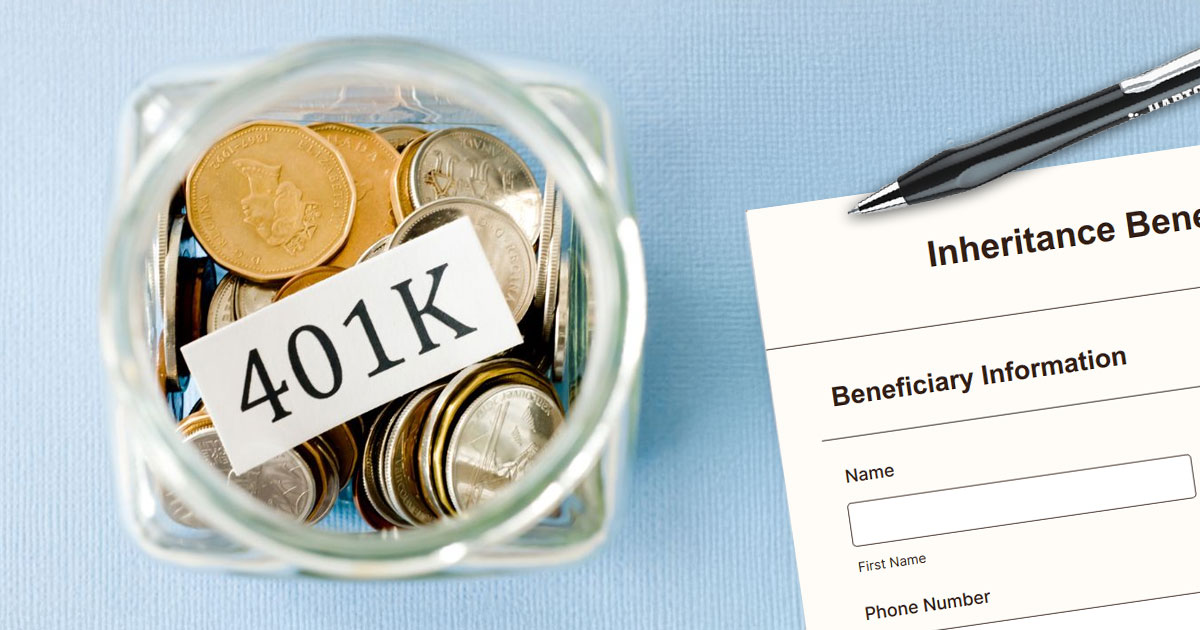401K Inheritance: Tips to Avoid Paying Taxes On It

Receiving a 401(k) inheritance can offer financial stability, but navigating the tax implications is crucial. The IRS applies different tax rules depending on the beneficiary’s relationship to the original account owner. Failing to follow the right steps could lead to a large tax bill. Learning how to avoid taxes on 401k inheritance can help maximize your inheritance while minimizing unnecessary tax burdens.
Do Beneficiaries Pay Taxes on 401(k) Inheritance?
Yes, beneficiaries generally owe taxes on an inherited 401(k) because contributions were made with pre-tax dollars. Any withdrawals count as taxable income. However, Roth 401(k)s are different. Because Roth 401(k) contributions come from after-tax income, withdrawals remain tax-free as long as the account has been open for five years or more.
Tax Rules for Spouse Beneficiaries
Spouses inheriting a 401(k) have greater flexibility, with the option to take ownership or transfer the funds into their own IRA.
Rolling the 401(k) Into an IRA
Spouses can move the funds into their IRAs, avoiding immediate taxation. Required minimum distributions (RMDs) will follow their age. This option allows continued tax-deferred growth and flexibility in managing withdrawals.
Leaving the Funds in the 401(k)
Some plans allow spouses to remain beneficiaries without taking immediate distributions. If the deceased was taking RMDs, the spouse must continue them based on their life expectancy.
Taking a Lump-Sum Distribution
A lump-sum withdrawal triggers full taxation in the year of distribution. This option makes sense only if the beneficiary needs immediate access to funds and can handle the tax consequences.
Tax Rules for Non-Spouse Beneficiaries
Non-spouse beneficiaries face stricter withdrawal rules. They cannot roll the inherited 401(k) into their retirement accounts. Instead, they must transfer it into an inherited IRA.
10-Year Withdrawal Rule
The SECURE Act changed how non-spouse beneficiaries handle inherited 401(k)s. All funds must be withdrawn within 10 years following the original account holder’s passing. Taxes apply to each withdrawal based on the beneficiary’s income tax bracket.
Exceptions to the 10-Year Rule
Some non-spouse beneficiaries qualify for extended withdrawals, including:
- Minor children (10-year rule starts when they reach adulthood)
- Disabled or chronically ill individuals
- Beneficiaries less than 10 years younger than the deceased
Tax Implications of Inheriting a Roth 401(k)
A Roth 401(k) offers tax-free withdrawals, but non-spouse beneficiaries must still empty the account within 10 years. No taxes apply if the original owner held the account for at least five years. If not, earnings on contributions may be taxable.
How to Avoid Taxes on 401(k) Inheritance
Strategic planning can help reduce taxes on an inherited 401(k). Several options exist to minimize the tax burden and keep more of the inheritance.
1. Spread Withdrawals Over Time
Withdrawing all funds at once results in a higher tax bill. Spreading distributions over 10 years reduces taxable income each year, preventing a jump into a higher tax bracket.
2. Convert to a Roth IRA Before Death
If the original account holder is still alive, converting a traditional 401(k) to a Roth IRA can help beneficiaries avoid taxes. The account holder pays taxes on the conversion, but future withdrawals will be tax-free.
3. Take Advantage of Low-Income Years
If a beneficiary expects lower income in certain years, withdrawing larger amounts during those years can reduce overall tax liability. This strategy works well for retirees or individuals between jobs.
4. Consider Charitable Giving
Leaving a 401(k) to a charity eliminates taxes. Since charities do not pay income tax, they can receive the full value of the account. This strategy benefits those who plan to donate a portion of their estate.
5. Use Trusts for Tax Management
A properly structured trust can help control distributions and manage taxes effectively. Trusts are useful when beneficiaries need structured payouts rather than a lump sum. However, tax treatment varies based on trust type and should be discussed with an estate planning professional.
Protecting an Inherited 401(k) from Creditors
Unlike personal 401(k) accounts, inherited 401(k)s do not have strong creditor protections. A lawsuit, bankruptcy, or divorce could put the funds at risk. Spouses who roll the account into their own 401(k) retain creditor protection. Non-spouse beneficiaries may consider setting up a trust for added security.
Common Mistakes to Avoid
Missteps in handling an inherited 401(k) can lead to unnecessary taxes and penalties. Being aware of potential mistakes helps beneficiaries maximize their inheritance.
1. Failing to Take Required Distributions
Missing required withdrawals can result in steep IRS penalties. Non-spouse beneficiaries must withdraw all funds within 10 years to avoid penalties of up to 25% on missed distributions.
2. Rolling an Inherited 401(k) into a Personal Retirement Account (for Non-Spouses)
Only spouses can roll an inherited 401(k) into their retirement accounts. Non-spouse beneficiaries must transfer funds to an inherited IRA. Mixing inherited funds with personal retirement savings could result in IRS penalties.
3. Not Considering the Tax Impact of a Lump-Sum Distribution
Taking a lump-sum distribution without considering tax consequences can lead to a large tax bill. Large withdrawals push beneficiaries into higher tax brackets, increasing the amount owed to the IRS.
4. Ignoring State Tax Laws
Some states impose additional taxes on inherited 401(k)s. Reviewing state tax laws helps beneficiaries prepare for any unexpected tax liabilities.
Keeping More of Your Inherited 401(k)
Managing an inherited 401(k) wisely can prevent unnecessary tax burdens. Understanding inherited 401k tax rules, planning distributions strategically, and using tax-saving strategies can help beneficiaries keep more of their inheritance. Consulting a tax professional ensures compliance with tax laws and avoids costly mistakes. Proper planning makes it possible to maximize the benefits of an inherited 401(k) while minimizing taxes.
